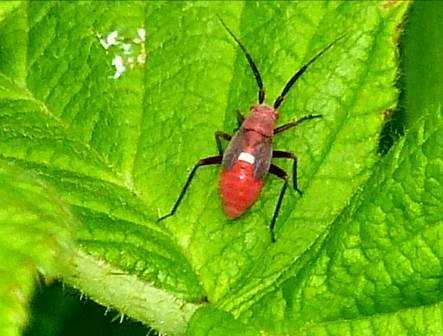MIAMI – U.S. Customs and Border Protection (CBP) Office of Field Operations (OFO) agriculture specialists working at Port Everglades intercepted a plant bug within a shipment of papayas from Guatemala on July 27. The U.S. Department of Agriculture (USDA) confirmed that this is the first time this particular pest has been intercepted at Port Everglades.
CBP agriculture specialists discovered the pest, later identified as Prepops latipennis (Miridae), during an inspection of cargo containers from Guatemala at Port Everglades. This pest is commonly referred to as a “plant bug”. The USDA identified it as an actionable pest and the container was sealed pending quarantine action. Miridae is a large family of insects known as plant bugs or leaf bugs.
CBP agriculture specialists protect the United States from the threat of invasive plant pests with inspection and prevention efforts designed to keep prohibited agricultural items from entering the country.
“CBP agriculture specialists are the first line of defense in protecting the U.S. against agricultural threats," said Port Everglades Port Director Jorge Roig. "Our CBP agriculture specialists are highly trained and experienced in biological sciences and we are very proud of them for intercepting this potential threat.”
Each year, CBP agriculture specialists intercept thousands of “actionable pests” – those identified through scientific risk assessment and study as being dangerous to the health and safety of U.S. agricultural resources.
To find out more about CBP operations in Florida, visit @CBPFlorida on Twitter.


